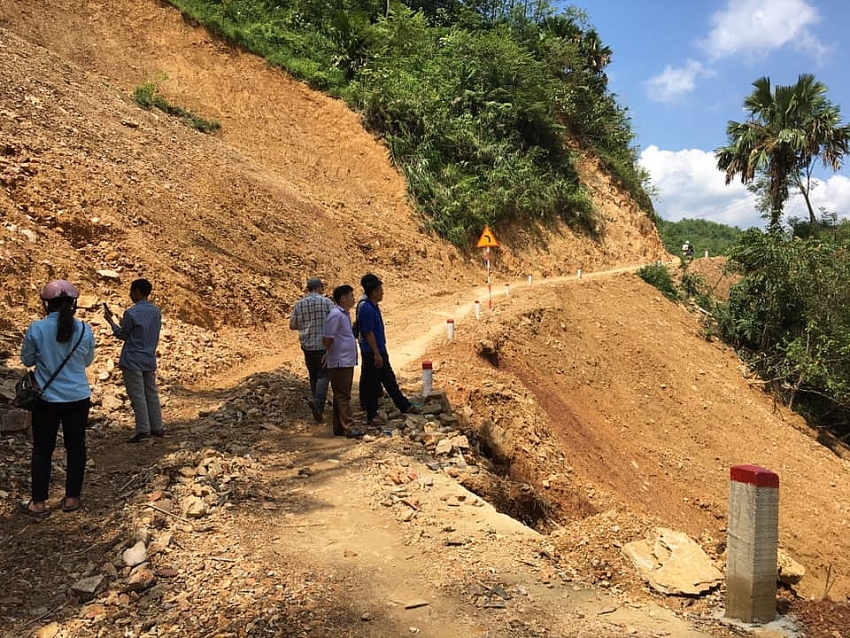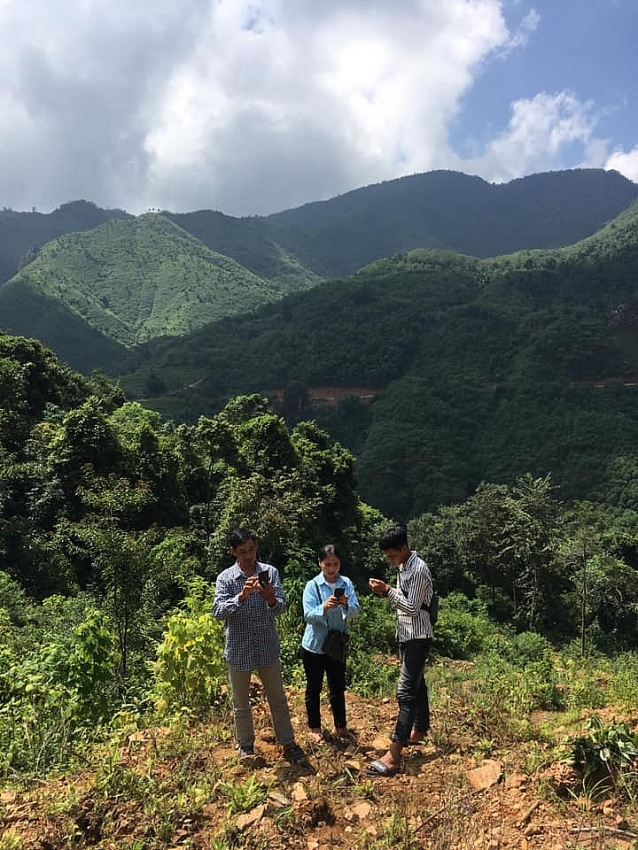Belgium extends natural hazard management support to Quang Nam
 |
| Belgium will work with Quang Nam for 20 months to improve its capacity to manage natural hazards |
The Royal Embassy of Belgium in Hanoi announced that the VLIR-UOS funded project “Capacity building on disaster management for the mountainous region of Da Bac district, Hoa Binh province” was approved for an expansion to Nam Tra My district, Quang Nam province. The project will be implemented by the Vietnam Institute of Geosciences and Mineral Resources (VIGMR) and the Belgian partner Vrije Universiteit Brussel (VUB) with a duration of 20 months (2021-2022).
“We are enthusiastic that the societal impact of university capacity building, based on a scientific partnership between Flemish and Vietnamese academics, is acknowledged by the Belgian Minister of Development Cooperation Meryame Kitir, given the invitation to extend the scope of the research area upon demand from local authorities, in order to cope with the effects of recent landslides. This is an illustration of the real impact on society of evidence based project results generated by VLIR-UOS projects,” Kristien Verbrugghen, VLIR-UOS director said.
From being long standing partners in development cooperation, Belgium and Vietnam have been maturing bilateral ties in different sectors. This project emphasises the continued support of the Belgian government to Vietnam to effectively respond to the challenges of climate change and natural disasters such as flooding and more specifically the devastating landslides in the central region of Vietnam, such as experienced in Quang Nam province in October 2020.
 |
| The representatives of the projects surveying a site |
“After offering urgent humanitarian aid to the affected population, Belgium also wanted to contribute to solutions for disaster management and to reduce the risks of disasters for the people in the future. The obtained results of this project will be also crucial for the agricultural sector – in which Belgium and the Ministry of Agriculture and Rural Development are in close collaboration to implement the Strategic Partnership Agreement on Agriculture signed in October 2018,” Ambassador Paul Jansen said.
With climate change, Vietnam is increasingly affected by natural hazards. In mountainous terrains, increased precipitations, combined with land use change and population pressure, induce the occurrence of slope instabilities. These landslides generate large, although poorly documented, impacts on the lives and livelihoods of rural populations.
This project aims at going beyond the traditional scientific assessment of landslide hazards by implementing real-time documentation of the occurrences and impacts of landslides jointly with local communities. With this participatory approach suitable disaster risk reduction practices adapted to the local context will be designed.
“The project will help to link scientists in different fields and managers to comprehensively consider the relationship between natural and human hazards, including the role of policy and culture, and will involve all stakeholders (individuals, organisations, and governments) to make recommendations,” Nguyen Quoc Dinh (VIGMR), project manager said.
The project contributes to building and improving the understanding of the dangers of natural disasters for the people and authorities, and aims to strengthen the proactive response to natural disasters in some areas of Nam Tra My district, Quang Nam province.
The project is a stepping stone towards longer-term cooperation between local management levels and scientists through the establishment of a local observer network to help local authorities in the decision-making process for natural disaster prevention/management.
“Local policy makers, risk managers, and communities at risk are at the core of our project. They contribute in designing the research, collecting data, and developing meaningful research outputs, leading to more sustainable impact,” professor Matthieu Kervyn (VUB) said.
What the stars mean:
★ Poor ★ ★ Promising ★★★ Good ★★★★ Very good ★★★★★ Exceptional
Related Contents
Latest News
More News
- Bac Ai Pumped Storage Hydropower Plant to enter peak construction phase (January 27, 2026 | 08:00)
- ASEAN could scale up sustainable aviation fuel by 2050 (January 24, 2026 | 10:19)
- 64,000 hectares of sea allocated for offshore wind surveys (January 22, 2026 | 20:23)
- EVN secures financing for Quang Trach II LNG power plant (January 17, 2026 | 15:55)
- PC1 teams up with DENZAI on regional wind projects (January 16, 2026 | 21:18)
- Innovation and ESG practices drive green transition in the digital era (January 16, 2026 | 16:51)
- Bac Ai hydropower works stay on track despite holiday period (January 16, 2026 | 16:19)
- Fugro extends MoU with PTSC G&S to support offshore wind growth (January 14, 2026 | 15:59)
- Pacifico Energy starts commercial operations at Sunpro Wind Farm in Mekong Delta (January 12, 2026 | 14:01)
- Honda launches electric two-wheeler, expands charging infrastructure (January 12, 2026 | 14:00)

 Tag:
Tag:




















 Mobile Version
Mobile Version